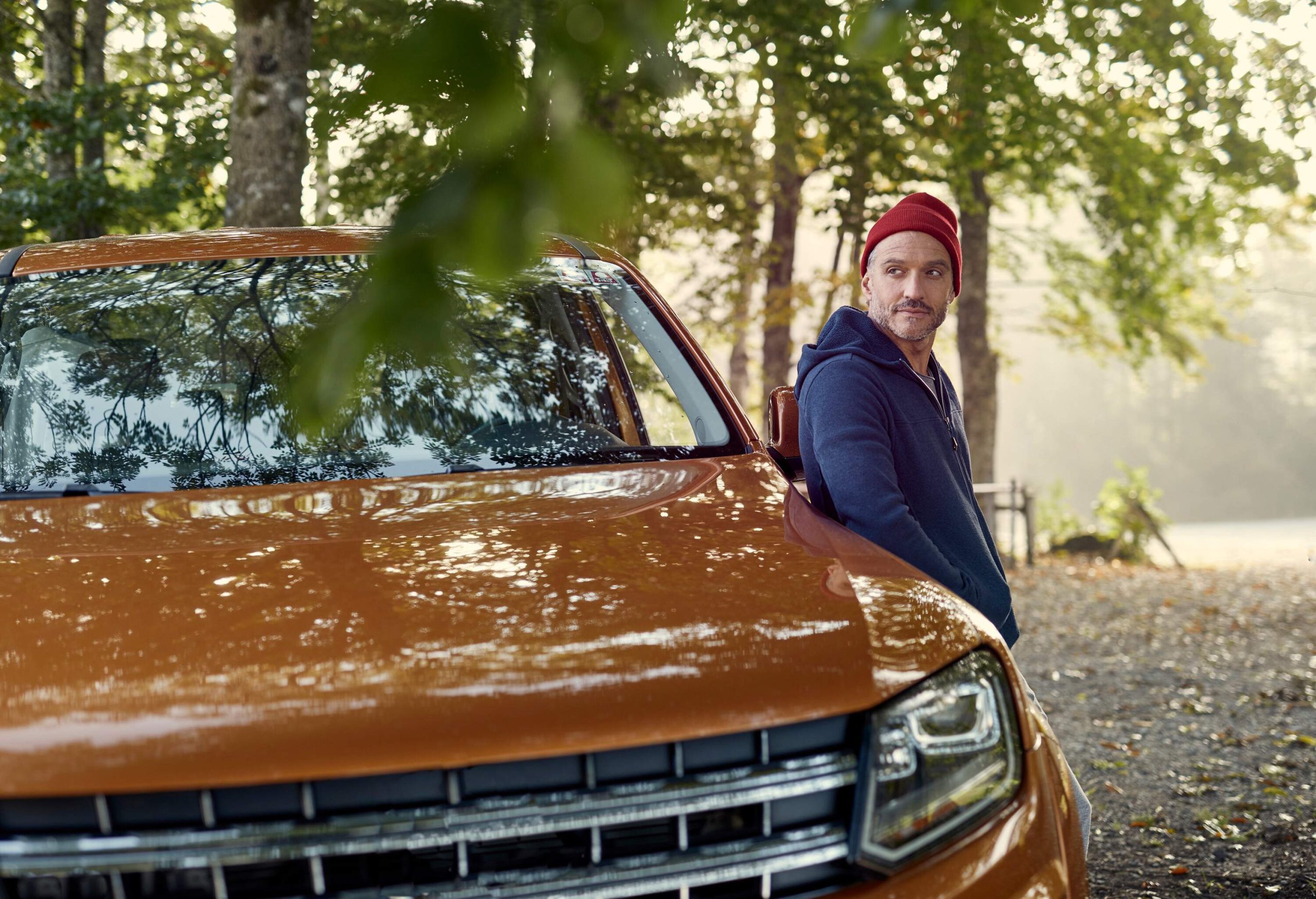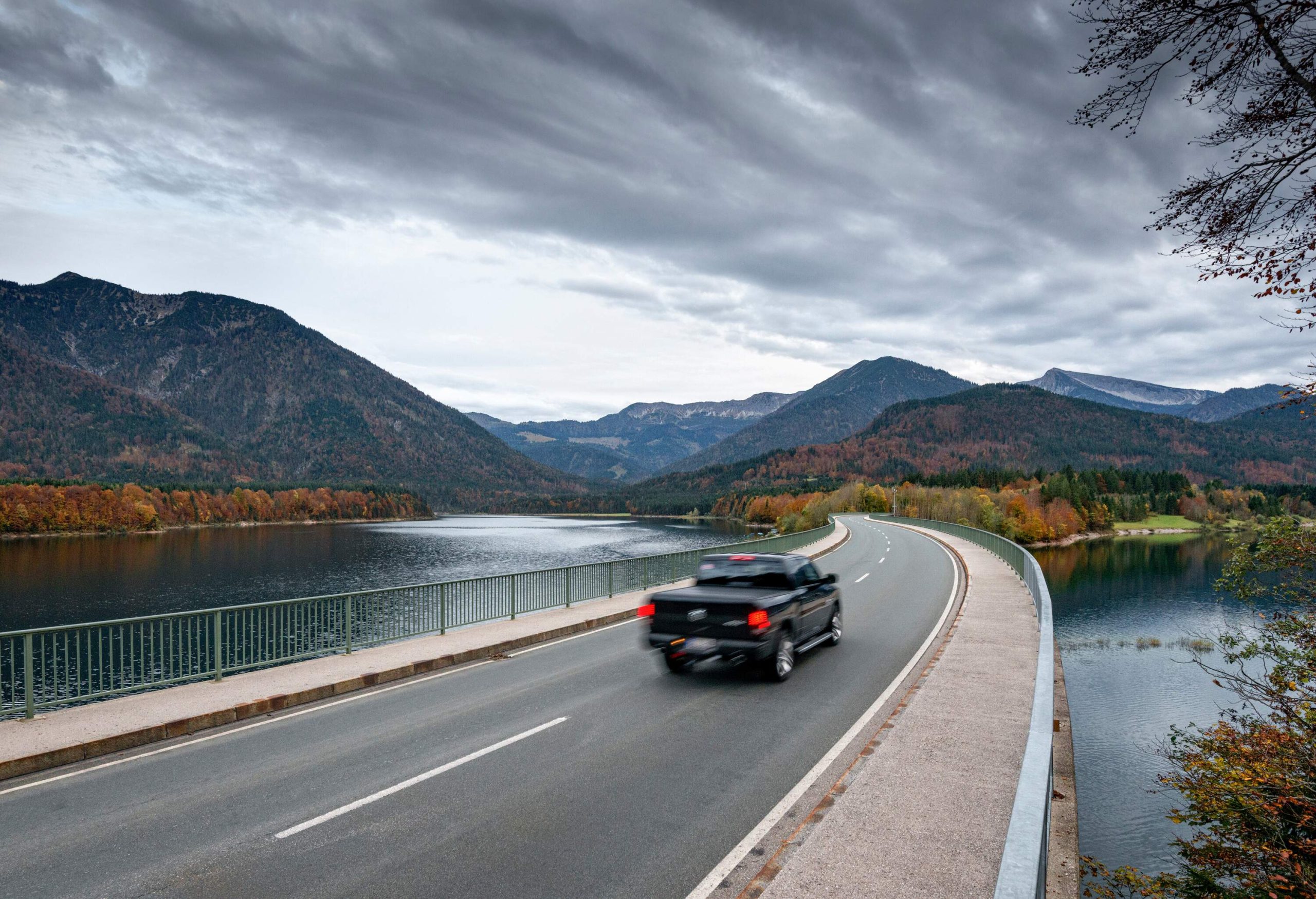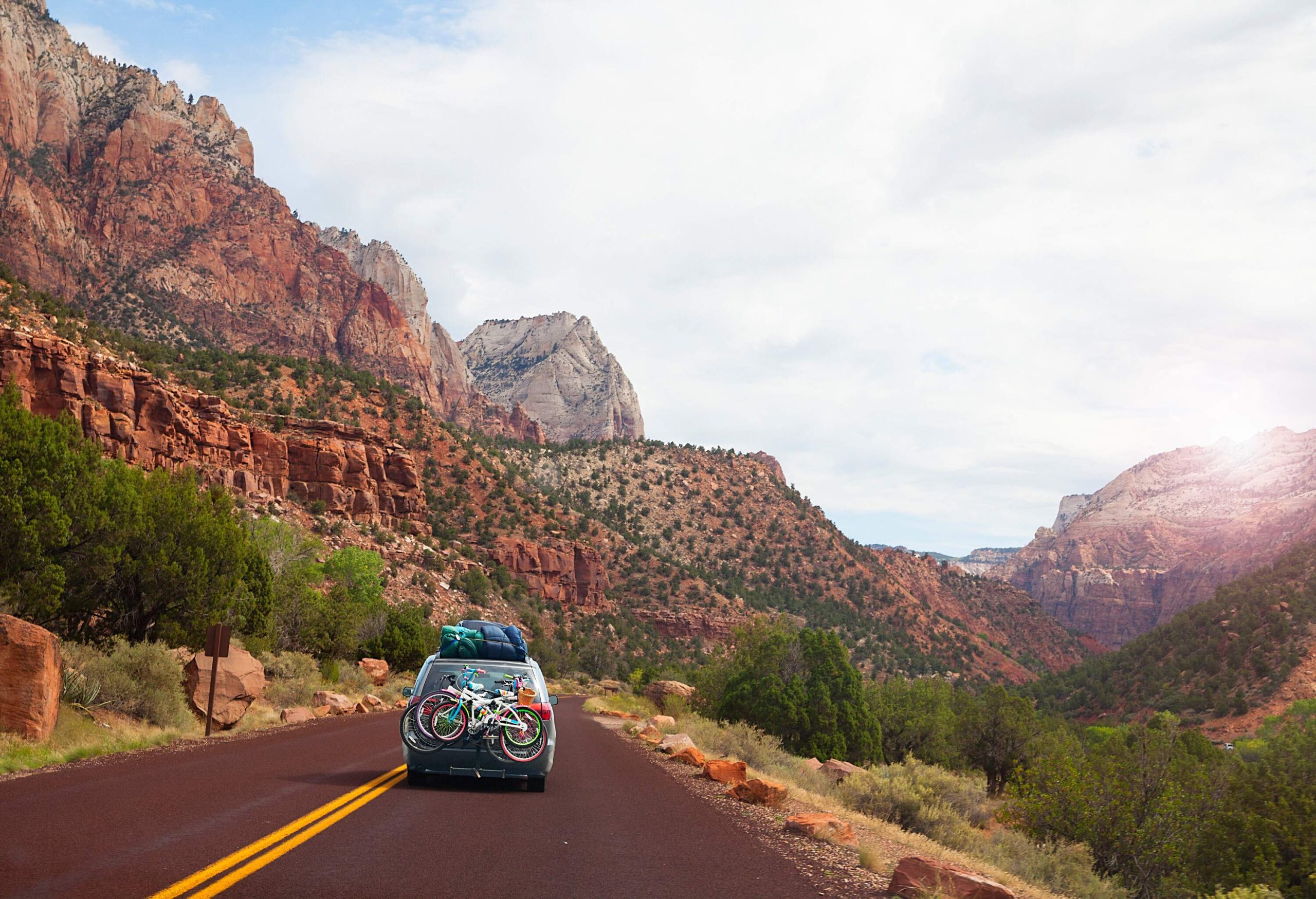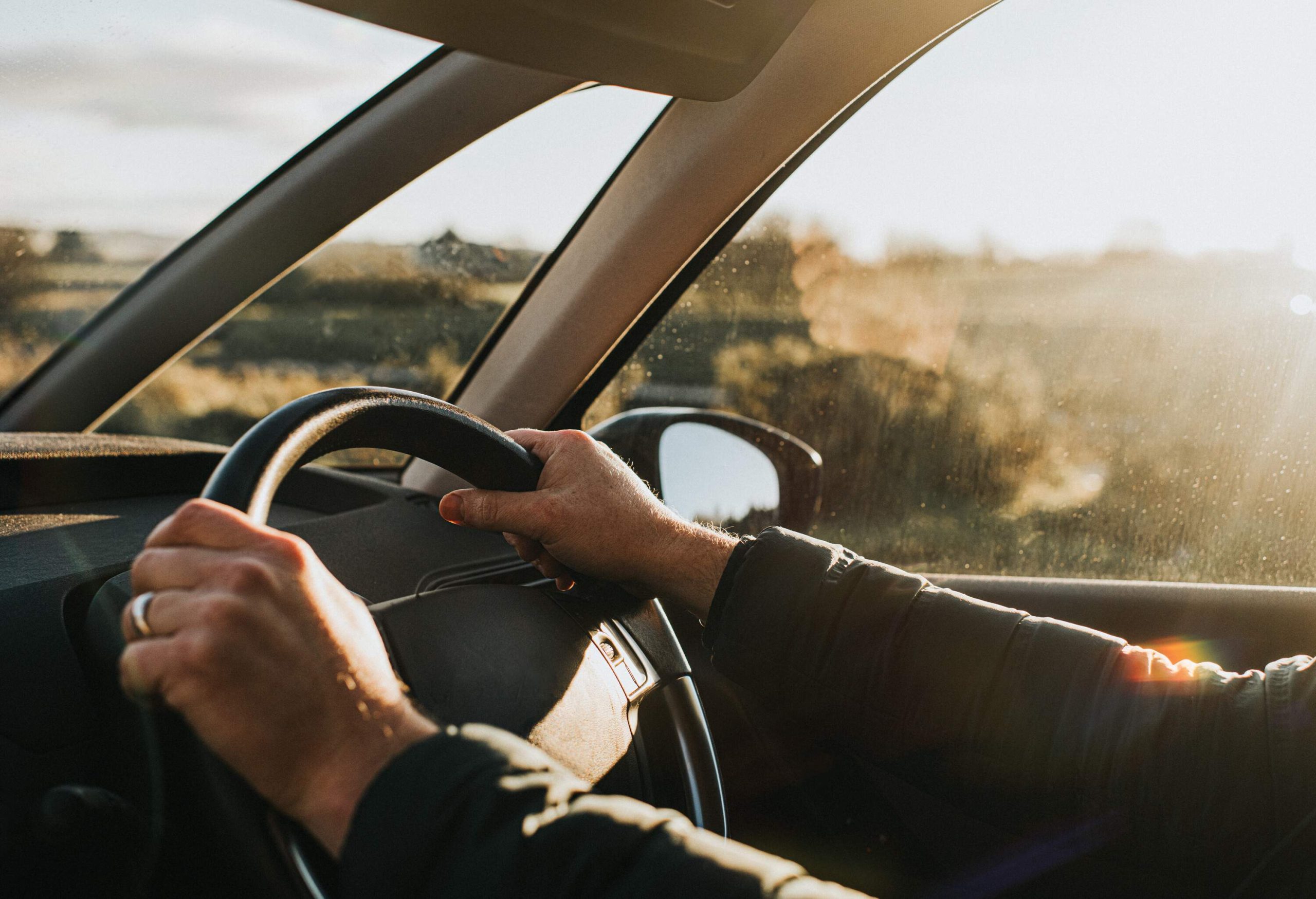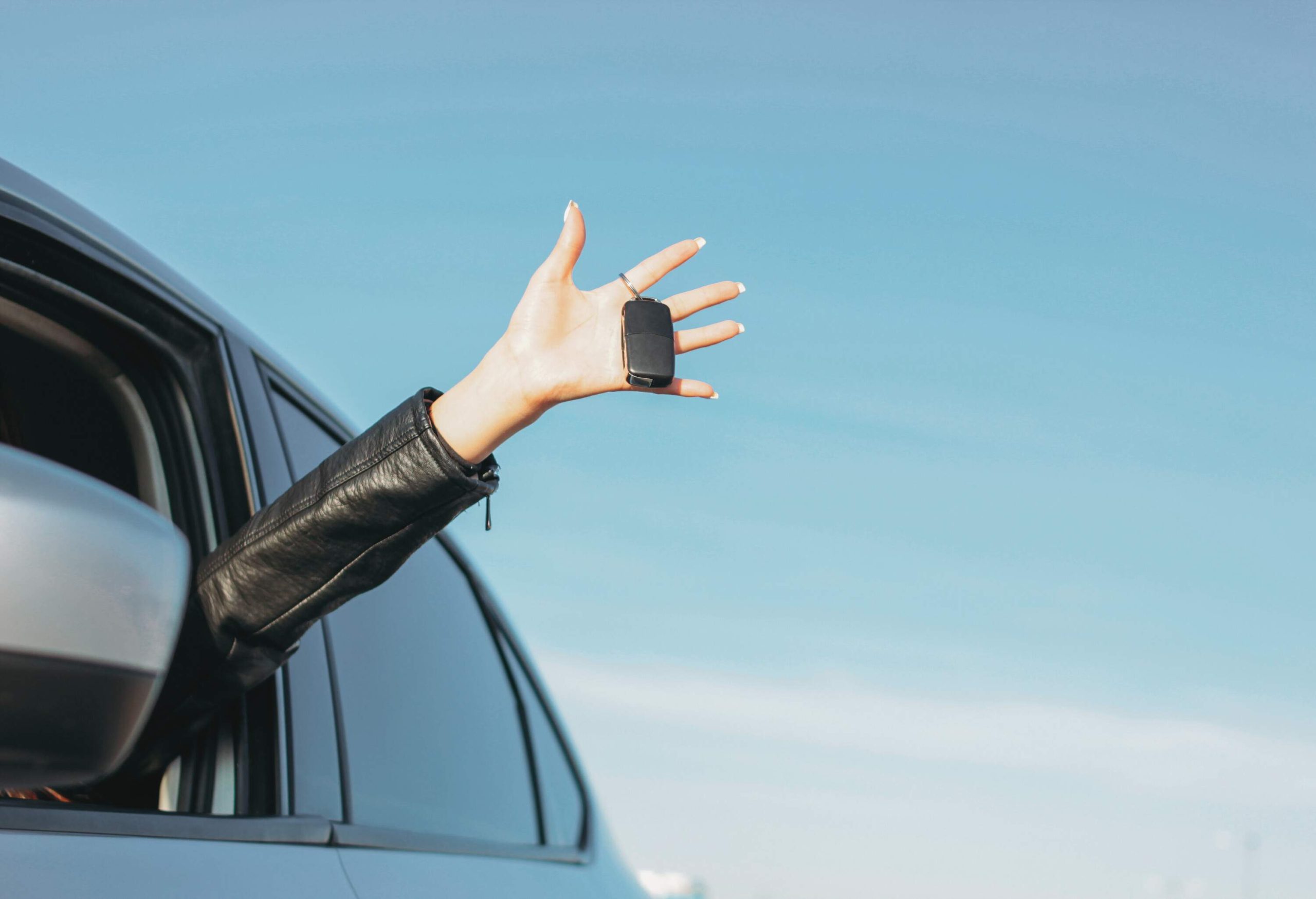With its vast network of well-maintained autobahns, scenic country roads and twisting mountain passes, driving in Germany is great fun. If you’re planning a road trip, it’s important to know which documents you need and what the driving requirements in Germany are. After years of living there and renting plenty of cars, here’s my guide to everything you need to know.
What you need to know before driving in Germany
If you’re driving to Germany from the UK, there are some simple things to know before you go. You can drive a UK car in Germany for up to six months in any 12 month period. By having the right documents and equipment in the car, you’ll stay on the right side of the law.
Mandatory driving documents
You must be at least 18 years old with a full and valid driving licence to drive in Germany. If you’re taking your own car, you should have certain documents with you whenever you’re driving:
Mandatory equipment for your car
As well as these documents, you also need to keep certain safety equipment in your car:
- High-visibility jackets
- A warning triangle
- A first aid kit
- Headlight beam deflectors. Most modern cars allow you to adjust headlamps manually but if not, you can add deflector stickers
- If you’re going to be driving in wintry conditions, you must have winter or all-season tyres fitted on your car
Driving in Germany after Brexit
The UK is no longer a member of the European Union. Driving in Germany with a UK licence alone is still legal. But if your licence was issued in Gibraltar, Guernsey, Jersey or the Isle of Man, you may also need an International Driving Permit (IDP). An IDP costs £5.50 and you can pick one up in person from the Post Office.
Hiring a car in Germany
What you need to hire a car in Germany
To hire a car in Germany you must be at least 18 years old. Some car rental companies impose a minimum age of 21 though, so always check before you book. You’ll need:
- A full and valid UK photocard driving licence
- An International Driving Permit if your licence was issued in Gibraltar, Guernsey, Jersey or the Isle of Man
- Your passport for proof of ID
A credit card for the security deposit – lots of car hire companies don’t accept debit cards for this
How to get the right type of car insurance
When you book a hire car, you need to have insurance. This is one of the prime areas where car hire companies love to part you from your money. Accordingly, there are usually several different insurance options, so it’s important to know what each covers you for.
- Most car hire companies include Third Party Liability (TPL) in the cost of your booking. This covers you for death, damage or injury to a third party in an accident you’re liable for.
- Collision Damage Waiver (CDW) is also usually included. This always comes with an excess payment in the event of damage, and that can vary depending on how much you’re paying.
- Loss Damage Waiver (LDW) includes CDW and Theft Protection (TP), so the replacement cost is covered should the car be stolen.


Rules of the road for driving in Germany
In Germany (and all of mainland Europe), you drive on the right and overtake on the left. Opposite to the UK, this means at junctions and roundabouts you should look and give way to those on the right. When entering a roundabout, traffic already on the roundabout has right of way.
Minimum driving age
The minimum driving age in Germany is 18 years.
Motorways & Road tolls
You don’t have to pay tolls when driving in Germany in a private car on any roads. Tolls are usually reserved for vehicles that weigh more than 7.5 tonnes being used to transport goods.
Priority & roundabouts
When entering a roundabout, remember that all traffic that is already on the roundabout has right of way. You don’t need to use your indicator when entering the roundabout, but you must use it before you exit.
Alcohol allowance & drink driving
The maximum Blood Alcohol Content (BAC) level allowed in Germany for drivers of private vehicles is 0.05%. If you’re under 21 or have held your licence for less than two years though, the alcohol limit is 0%. This is lower than in the UK and applies to both German and international drivers.
Child seats regulations
Any children aged three years and younger must be in a child seat at all times when travelling in the car. Children from three to 12 years and who are under five feet (or 150 cm) tall should be in a child seat or child restraint. If you don’t have one then you can use the car seatbelt or another approved safety device to keep them secure.
Parking
Parking, especially in cities, can be a bit of a minefield with confusing signage and unrelenting parking officers. If your car is stationary for more than three minutes, it’s considered parked. As a general rule, you’re only allowed to park on the right side of the road unless it’s a one-way street wide enough to park on both sides.
If you need to pay but the parking meter is out of order, you must display a parking disc. If you see a white square with a parking disc in the corner then you must display your parking disc. The words ‘Bewohner mit Parkausweis Nr. … frei’ indicate a residential parking spot. These have additional restrictions to the times you can park there, which are usually shown on the street signs.
Parking is prohibited where you see a C19 sign, within five metres (16 feet) of pedestrian crossings or within 10 metres (33 feet) of a traffic light. You’re also now allowed to wait where you see a C18 sign or in narrow streets with insufficient visibility.
Disabled parking is free for up to three hours in a residential spot or restricted parking zone, and for an unlimited time in metered spaces.
Fuel
Petrol stations typically offer unleaded fuel both in 95 octane (E10) and 98 octane, diesel, LPG and electric charging. You may find older and rural petrol stations don’t include electric car charging points. You can pay with cash or credit cards at most petrol stations. Keep in mind that unless you’re on the motorway or in a big city, most petrol stations are only open from 8 am to 8 pm.
Conclusion
Germany is a great country to drive in. Its excellent road network combined with spectacular landscapes make it road trip heaven. Renting a car is straightforward and there are service stations everywhere.If a road trip isn’t your thing, Germany is also fantastic to explore by train. From its magical cities to its spectacular forests, there are plenty of amazing places to visit.
Driving in Germany – FAQs
Yes, you can drive for up to six months in a 12 month period using your full, valid UK licence. If you plan to stay longer, you’ll need to exchange your UK licence for a German Führerschein.
Yes. As long as the car has a full MOT, is taxed and insured, you can drive your English car in Germany. You’ll need to be 18, have a full valid UK driving licence and carry certain documents and equipment in the car with you.
No, you don’t need a vignette to drive in Germany. There are no toll roads for private cars, but there are now environmental Low Emission Zones where a permit is required. This is called an ‘Umweltplakette’ and you can buy it online before you leave.
To hire a car in Germany you need a full and valid UK driving licence and a credit or debit card. You might also need to show an International Driving Permit if you do not hold a driving licence issued by the UK mainland as well as your passport.
You must be at least 18 years of age to hire a car in Germany, though some car hire companies require a minimum age of 21 years.
British passport holders living in or wishing to travel to the EU and EU nationals living in or wishing to travel to the UK from the 1st January 2021 are to be advised that all travel-related information have to be checked on this official webpage in order to inform yourself about all and any information pertinent to Brexit when making travel decisions.





